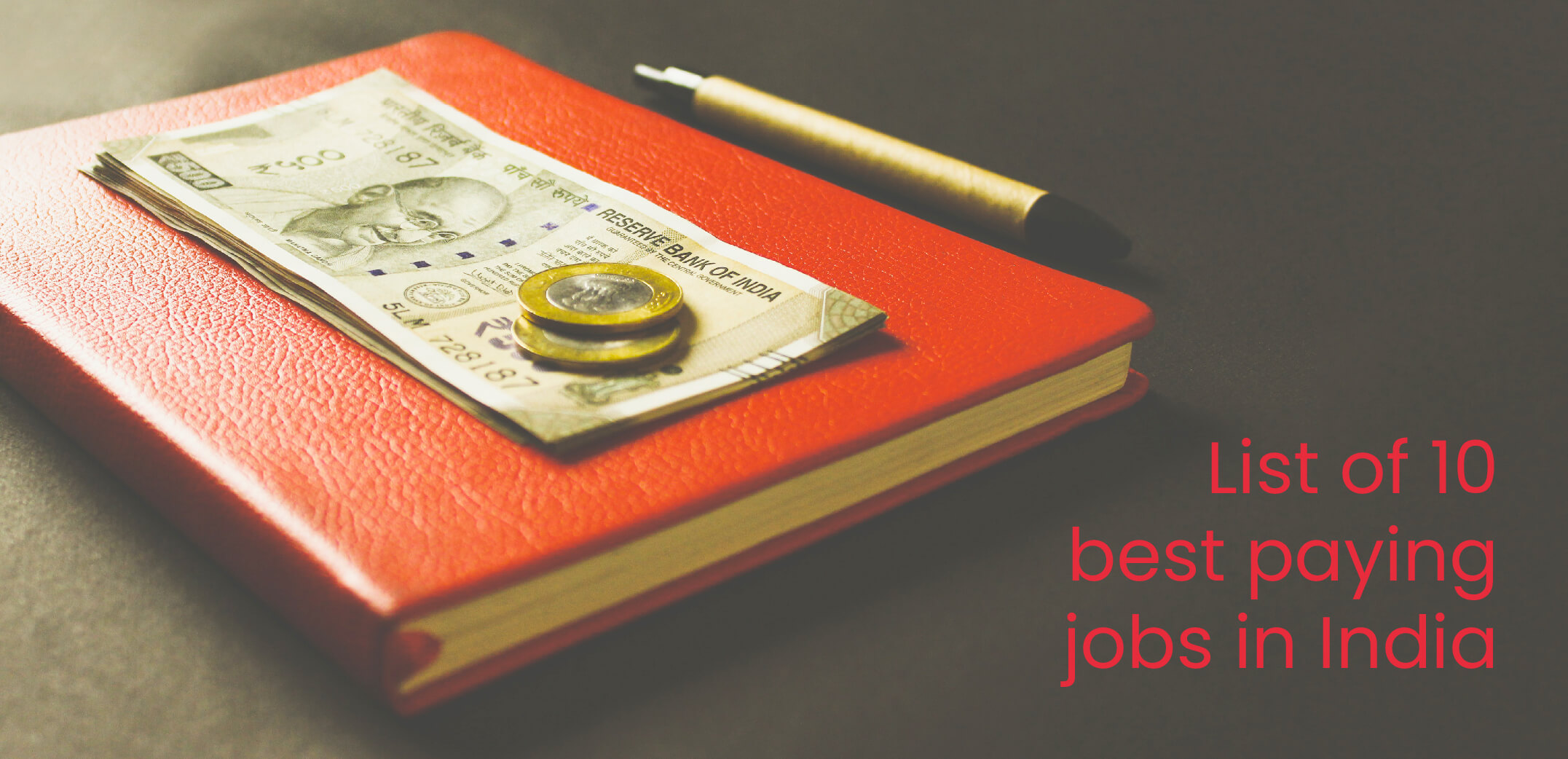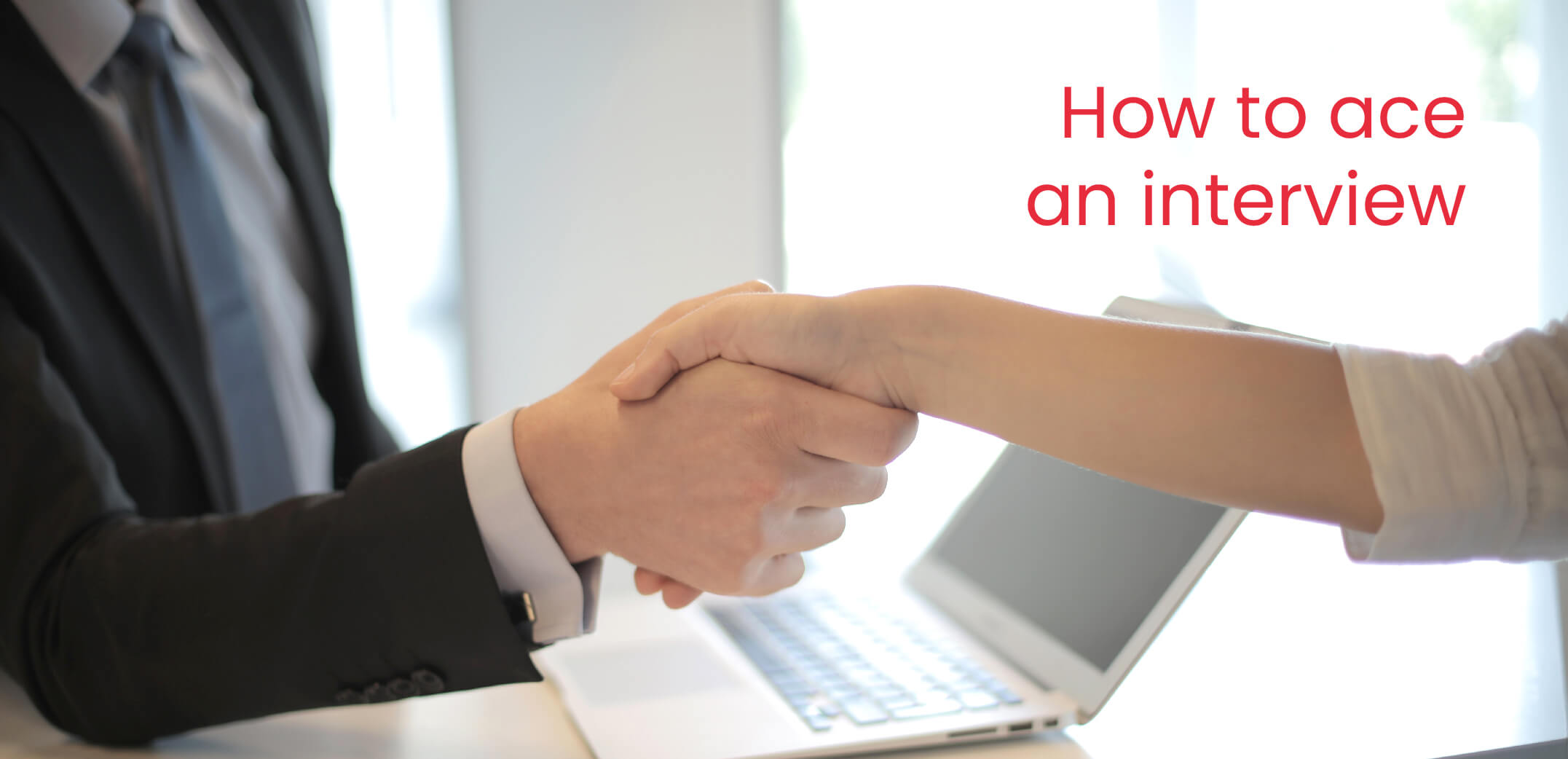Blog > Things To Do Before and After the Interview Process
Things To Do Before and After the Interview Process
November 30th, 2022

Table of Contents
How to write a Profile Summary
i) What to include in a Profile Summary
ii) Tips to write the perfect Profile Summary
How to write a Acceptance letter
Conclusion
In our previous blog, we discussed the typical process for job interviews, but here are two important steps that almost always get overlooked by freshers. If you think your job interview only involves the face-to-face interview, think again!
Your job interview starts the minute you send in your resume. However there is a crucial step between writing your resume and sending it out. We’re talking about writing a Profile Summary! Similarly there is a step freshers don’t count, between getting an offer and starting work. Did you guess it?
It’s a Job Acceptance Letter! So the next time you’re preparing to crack your interview, between learning the correct communication skills for your or the answers to patterned interview questions, don’t forget to add these steps too!

For those of you who are hearing this for the first time, a Profile Summary is a brief explanation of your qualifications, skills and relevant accomplishments. Think of it as a short paragraph that summarizes your entire CV, to give interviewers an idea of what you’re like. Make sure to customize your CV along with the Profile Summary based on the job description.
Keep your profile summary short, crisp and to the point. Do not add irrelevant details, if you have any accomplishments or skills that are not required for this job do not bother adding them. Cooking as a skill bears no relevance to a coding job. Give your hard skills preference over your soft-skills. That’s not to say soft-skills do not matter, but if you have experience in coding, mention that instead of your interpersonal skills. Remember, you have an entire Resume left to add the remaining of your soft skills. And lastly, read the job description very carefully and understand everything about this position/vacancy.
Now that you know what to prepare before your interview, let's take a look at what comes after the interview.

Let us assume that you wrote the most amazing CV, got a call back for an interview, prepared everything for your upcoming interview (from communication skills for an interview to the correct body language), gave the best interview of your life and even managed to get a call back from the company with a job offer waiting for you. Now what? You got the job offer you fought so hard for, are you going to accept it with just a single thumbs up emoji (for ref:👍) ?
The short answer is no. Absolutely not. You need to write a formal Job Acceptance Letter to your recruiters. Whether you send it physically or via email is up to you.
First time writing one? We’ve got you covered.
What is a Job Acceptance Letter? To put it simply, after the selection process, your recruiter will send you a formal job offer. You need to accept the same to confirm that the job is yours. An acceptance letter also acts as proof that you agree with all the terms and conditions that come with your offer (Work timings, leave policy, overtime policy etc.)

Learning to write your Profile Summary and Acceptance letter should definitely make it your list of important student interview skills. Writing a Profile summary correctly is important because companies get hundreds of job applications for the interview, and your resume has to get selected in a literal glance. Think of the Profile Summary as the written answer to the popular interview question ‘walk me through your resume’. On the other hand, your Acceptance letter is binding, and needs to be treated formally.
If you’re worried about cracking your interviews, upGrad Campus offers robust placement support that you can opt for with our courses, Placement Plus and Internship plus cover everything you need to or can know about the complete interview process. Sign up for Placement/Internship Plus with one of our courses and get 3 assured interview opportunities with top indian and global companies.
If you found this article helpful, let us know in the comments below!
How to write a Profile Summary
i) What to include in a Profile Summary
ii) Tips to write the perfect Profile Summary
How to write a Acceptance letter
Conclusion
In our previous blog, we discussed the typical process for job interviews, but here are two important steps that almost always get overlooked by freshers. If you think your job interview only involves the face-to-face interview, think again!
Your job interview starts the minute you send in your resume. However there is a crucial step between writing your resume and sending it out. We’re talking about writing a Profile Summary! Similarly there is a step freshers don’t count, between getting an offer and starting work. Did you guess it?
It’s a Job Acceptance Letter! So the next time you’re preparing to crack your interview, between learning the correct communication skills for your or the answers to patterned interview questions, don’t forget to add these steps too!
How to Write a Profile Summary for Freshers - Before the Interview

For those of you who are hearing this for the first time, a Profile Summary is a brief explanation of your qualifications, skills and relevant accomplishments. Think of it as a short paragraph that summarizes your entire CV, to give interviewers an idea of what you’re like. Make sure to customize your CV along with the Profile Summary based on the job description.
So what should you include in your Profile Summary?
- Qualifications - Add all your qualifications, including any additional certifications or courses you may have taken. Take care to read the job description, if there are specific requirements - like ‘proficiency in Java’ - take special care that you mention these (provided you meet them of course).
- Experience - If you have any work experience, add that. For freshers however, any relevant internship experience or projects you may have completed in the past will count as your experience. Mention them in a sentence or so.
- Your most stand-out quality - This can be a soft-skill such as ‘public speaking’ or a hard skill such as ‘experience in C++’ - anything that you do best and can make you standout. Only add this if the quality is relevant.
- Expertise - Again going back to the job description, if you are an expert or are good at something the company has listed as a requirement, make sure to highlight that and give it special attention. If the role requires you to communicate with a lot of external teams, make sure you mention your expertise by saying, for example, ‘I headed the marketing department in our college fest. One of the many tasks I accomplished was dealing with various external parties to get xyz work done’.
- Accomplishments - If you have any relevant awards or achievements in your name, don’t forget to add them here! If you’re applying for a programming job, add any hackathons you won or any coding competitions you participated in.
A few tips to keep in mind
Keep your profile summary short, crisp and to the point. Do not add irrelevant details, if you have any accomplishments or skills that are not required for this job do not bother adding them. Cooking as a skill bears no relevance to a coding job. Give your hard skills preference over your soft-skills. That’s not to say soft-skills do not matter, but if you have experience in coding, mention that instead of your interpersonal skills. Remember, you have an entire Resume left to add the remaining of your soft skills. And lastly, read the job description very carefully and understand everything about this position/vacancy.
Now that you know what to prepare before your interview, let's take a look at what comes after the interview.
How to write a Job Acceptance Letter - After the Interview

Let us assume that you wrote the most amazing CV, got a call back for an interview, prepared everything for your upcoming interview (from communication skills for an interview to the correct body language), gave the best interview of your life and even managed to get a call back from the company with a job offer waiting for you. Now what? You got the job offer you fought so hard for, are you going to accept it with just a single thumbs up emoji (for ref:👍) ?
The short answer is no. Absolutely not. You need to write a formal Job Acceptance Letter to your recruiters. Whether you send it physically or via email is up to you.
First time writing one? We’ve got you covered.
What is a Job Acceptance Letter? To put it simply, after the selection process, your recruiter will send you a formal job offer. You need to accept the same to confirm that the job is yours. An acceptance letter also acts as proof that you agree with all the terms and conditions that come with your offer (Work timings, leave policy, overtime policy etc.)
So how do you go about writing one?
- Review your offer letter once more and check if you actually agree with everything about this position/vacancy. We know it’s tedious, but you have to read any contract thoroughly before agreeing to it.
- Add a Subject line on top if you’re writing an email - (Job Acceptance Letter - <Your full name>)
- Add a date on the top Right corner.
- If you’re sending a physical letter, write the subject line here (Subject - Job Offer Acceptance - Full Name)
- Add the correct greetings and salutations (Greetings of the day / Dear, Sir/Madam or Mr./Ms./Mrs. <name of the person>)
- Thank them for extending this offer to you. (I would like to express my sincere gratitude to you, for offering me the position of XYZ at your company.)
- Accept the offer. (After reviewing the offer, I would like to formally confirm my acceptance.)
- Along with the offer, accept the terms and conditions. (I understand that my annual CTC of xyz and that my joining date would be x/y/z)
- End the body of the letter by expressing your excitement to join their company. (I look forward to being a part of your team and this company. Should you require any further further details from my end feel free to contact me. My Contact details are +91xyz.)
- Sign off or add your signature (Thanks again/Thanks and Regards/Warmest Regards, - Your Full Name.)
Conclusion

Learning to write your Profile Summary and Acceptance letter should definitely make it your list of important student interview skills. Writing a Profile summary correctly is important because companies get hundreds of job applications for the interview, and your resume has to get selected in a literal glance. Think of the Profile Summary as the written answer to the popular interview question ‘walk me through your resume’. On the other hand, your Acceptance letter is binding, and needs to be treated formally.
If you’re worried about cracking your interviews, upGrad Campus offers robust placement support that you can opt for with our courses, Placement Plus and Internship plus cover everything you need to or can know about the complete interview process. Sign up for Placement/Internship Plus with one of our courses and get 3 assured interview opportunities with top indian and global companies.
If you found this article helpful, let us know in the comments below!






Add a Comment